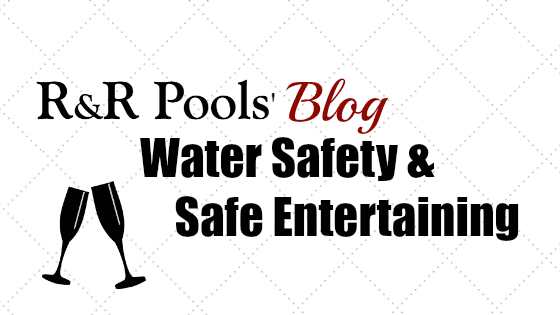Water Safety
Water safety is a huge concern for everyone. Follow these tips and you can greatly lessen any chances of an accident.
- Adequate Adult Supervision! A child can drown in as little as 2 inches of water. If you must leave the pool area for any reason such as to answer the phone or get a towel, take your child with you.
- Be careful of backyard pools in your neighbourhood; a child could wander off to play and if a gate is not closed, your child could be in jeopardy of drowning.
- Enroll children in swimming lessons taught by trained instructor.
- Watch children and adults as they are using slides, diving boards or jumping into the pool. Head and back injuries are likely to transpire during these activities.
Pool Rules:
NO running NO glass
NO food or drink NO peeing
NO shoving NO shallow diving
Alcohol can slow down response times and make you more vulnerable to drowning and other injuries.
Accident Prevention Suggestions:
- Arrange swimming lessons for all family members.
- Restrict access to your backyard pool area and ensure your fence meets local by-law requirements.
- Always swim with a buddy and with adult supervision
- Do not use slides on above ground pools
- Stay within sight at all times when children are in or around any body of water
- Ensure your fence and gate locks are up to code
ADULT SUPERVISION IS THE PRIMARY LAYER OF SAFETY!
Safe Entertaining
Your pool can be the central point for joyful entertaining. Organization and planning can help prevent accidents, injuries and make your entertaining truly pleasurable.
- Food and Drink play a significant part in your entertaining. Create an area away from the pool for food and drink to prevent unintentional slips and falls caused by spills near the pool or deck, and to prevent debris from dropping into the pool.
- Use only unbreakable dishes, drink containers and utensils. Never use glass anywhere near the pool. Broken glass is undetectable in water and extremely challenging to get out of the support system.
- Do not use extension cords near the pool, and keep any essential electrical appliances away from the pool area. Use a GFCI on any appliance that must be near the pool, where possible use battery operated appliances.
- Assert that poor swimmers, or non-swimmers, among your guests stay in water that is not over their heads. Do not assume that each person near or in the water can swim well or will know what to do in the event of an emergency
- People with skin, ear, genital or other body infections, open sores or wounds should not use the pool because of the risk of spreading infection.
- If you use the pool at night, provide sufficient lighting in and around the pool so the pool bottom is visibly clear.
- Use of alcohol or drugs does not mix with pool events. These substances act as depressants. They can “slow you down” because it affects the part of the brain which exercises control and restraint. Alcohol can install false bravery or boldness, leading people to try things they normally would not, such as horseplay or swimming and diving competitions. As a result, persons who have been consuming alcohol should not be permitted in the pool and should be carefully supervised in the area adjoining the pool.
- Prescription medicines sometimes cause drowsiness or have other side effects. If you are taking prescription medication, check with your doctor before using the pool.
- Using inflatable toys, rafts and floats in the pool can be fun, but remember that they can also deflate. Poor swimmers or non-swimmers should use them only in shallow water.
- Games that may appear safe sometimes are not. Encourage and supervise the use of pool games and toys. Forbid horseplay, particularly throwing or pushing someone into the pool.
- Ban activities such as diving through an inner tube. Serious head or neck injuries could occur regardless of water depth, due to hitting the head on the inner tube and / or bottom or side of the pool
- Guests who have removed eyewear for swimming should be mindful that their depth perception and ability to judge distance is altered. Children especially may be unaware of the variance.
- Do not allow running on the pool deck as injuries may occur from slips and falls.
- Stay out of the pool during lighting or rain storms because there is a chance of electrocution from the lighting hitting the water
- You have the bottom line of accountability in pool side entertaining. Use good judgement to help safeguard yourself, your family and your guests. Forbid use of the pool by persons whose condition or skill you doubt. Remember, you are in charge of your pool.
Last word on drinking: The alcohol in just one or two beers can affect your judgement, although you don’t feel or seem to be intoxicated. Even a minor quantity can slow your reactions. This is especially true if you are sleepy, on medication, such as cold or allergy medications or prescription drugs. Research shows alcohol is involved in 50 – 80% of all severe diving accidents. Plan your events so the swimming comes earlier then the drinking. Studies have shown that alcohol is directly connected to a majority of the diving accidents. The effects of alcohol are a key contributor to all other pool accidents. Oversee your pool happenings.

